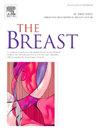Influence of ethnicity on cyclin-dependent kinase inhibitor efficacy and toxicity: A systematic review and meta-analysis
IF 5.7
2区 医学
Q1 OBSTETRICS & GYNECOLOGY
引用次数: 0
Abstract
Background
The combination of cyclin-dependent kinase 4 and 6 inhibitors (CDK4/6i) with endocrine therapy (ET) is the standard of care for patients with hormone receptor-positive/human epidermal growth factor receptor 2-negative (HR+/HER2-) advanced breast cancer (aBC). While the efficacy and safety profiles of CDK4/6i and ET have been extensively evaluated in phase II and III trials worldwide, it remains unclear whether the response to CDK4/6i and toxicity profile vary among Asian and non-Asian patients. Therefore, we aimed to assess the treatment efficacy of ET with and without CDK4/6i by comparing outcomes in Asian and non-Asian subgroups included in these clinical trials. In addition, we evaluated the toxicity profiles of the treatments by estimating the risk of treatment-related adverse events (AEs).
Methods
We conducted a meta-analysis including the most recent randomized trial data systematically searched from PubMed, Embase, Web of Science, Cochrane CENTRAL (from inception to May 31st, 2024) or presented in abstracts or oral presentations at the ESMO, ASCO, and SABCS international congresses. We included studies comparing CDK4/6i (palbociclib, ribociclib, abemaciclib, dalpiciclib) + ET versus placebo + ET. Progression-free survival (PFS) and overall survival (OS), hazard ratios (HR), and 95 % confidence intervals (CI) were extracted for the two subgroups of interest. To evaluate the treatment-related toxicity profiles, we extracted the number of side effects to estimate the risk of treatment-emergent AEs.
Results
Eleven studies (n = 5129) were included in this meta-analysis. The addition of CDK4/6i to ET consistently improved PFS in both Asian (HR = 0.52, 95 % CI 0.47–0.60; p < 0.001) and non-Asian (HR = 0.58, 95 % CI 0.52–0.64; p < 0.001) groups. Similarly, the combination of CDK4/6i + ET led to an OS improvement in both Asian (HR = 0.75, 95 % CI 0.62–0.91; p = 0.003) and non-Asian (HR = 0.81, 95 % CI 0.73–0.89; p < 0.001) patients. The risk of treatment related toxicity was higher in the CDK4/6i + ET arm in both Asian and non-Asian groups. Interestingly, a numerically higher rate of treatment-related hematological toxicity was observed in Asian patients, although no significant interethnic difference was found in the relative risk of these events.
Conclusions
The combination of CDK4/6i and ET significantly improves PFS and OS compared to ET alone in both Asian and non-Asian patients with HR+/HER2-aBC. Although the magnitude of benefit appears to be independent of ethnicity, future clinical trials should devise a standardized method for stratifying patients by ethnicity to more effectively assess potential differences in treatment benefits.
Systematic review registration
PROSPERO registration number: CRD42024543217.
种族对细胞周期蛋白依赖性激酶抑制剂疗效和毒性的影响:系统回顾和荟萃分析。
背景:细胞周期蛋白依赖性激酶4和6抑制剂(CDK4/6i)联合内分泌治疗(ET)是激素受体阳性/人表皮生长因子受体2阴性(HR+/HER2-)晚期乳腺癌(aBC)患者的标准治疗方法。虽然CDK4/6i和ET的疗效和安全性已在全球的II期和III期试验中进行了广泛评估,但目前仍不清楚亚裔和非亚裔患者对CDK4/6i的反应和毒性是否存在差异。因此,我们旨在通过比较这些临床试验中亚裔和非亚裔亚组的疗效,评估使用 CDK4/6i 和不使用 CDK4/6i 的 ET 的治疗效果。此外,我们还通过估计治疗相关不良事件(AEs)的风险来评估治疗的毒性概况:我们进行了一项荟萃分析,包括从 PubMed、Embase、Web of Science、Cochrane CENTRAL(从开始到 2024 年 5 月 31 日)系统搜索的最新随机试验数据,或在 ESMO、ASCO 和 SABCS 国际大会上发表的摘要或口头报告。我们纳入了比较 CDK4/6i(palbociclib、ribociclib、abemaciclib、dalpiciclib)+ ET 与安慰剂+ ET 的研究。提取了两个相关亚组的无进展生存期(PFS)和总生存期(OS)、危险比(HR)和 95 % 置信区间(CI)。为了评估与治疗相关的毒性概况,我们提取了副作用的数量,以估计治疗引起的AEs的风险:本荟萃分析纳入了 11 项研究(n = 5129)。在ET基础上加用CDK4/6i可持续改善两个亚洲人的PFS(HR = 0.52, 95 % CI 0.47-0.60; p 结论:CDK4/6i与ET的联合治疗可持续改善两个亚洲人的PFS:在HR+/HER2-aBC的亚裔和非亚裔患者中,CDK4/6i和ET的联合用药比单用ET能显著改善PFS和OS。尽管获益程度似乎与种族无关,但未来的临床试验应设计出一种标准化方法,按种族对患者进行分层,以更有效地评估治疗获益的潜在差异:系统综述注册:PROSPERO 注册号:CRD42024543217。
本文章由计算机程序翻译,如有差异,请以英文原文为准。
求助全文
约1分钟内获得全文
求助全文
来源期刊

Breast
医学-妇产科学
CiteScore
8.70
自引率
2.60%
发文量
165
审稿时长
59 days
期刊介绍:
The Breast is an international, multidisciplinary journal for researchers and clinicians, which focuses on translational and clinical research for the advancement of breast cancer prevention, diagnosis and treatment of all stages.
 求助内容:
求助内容: 应助结果提醒方式:
应助结果提醒方式:


